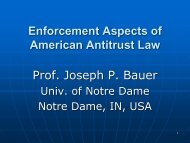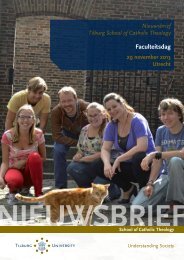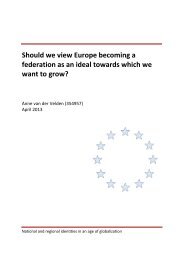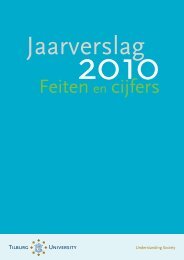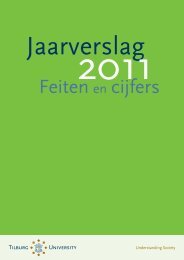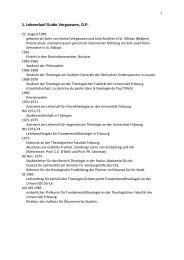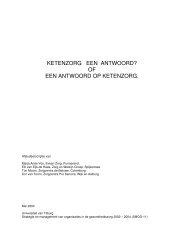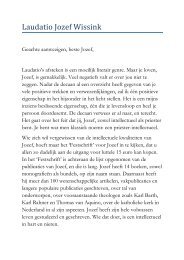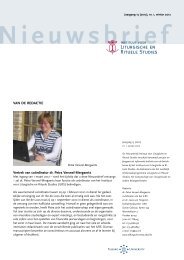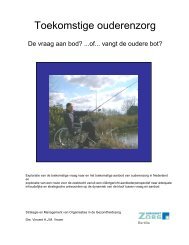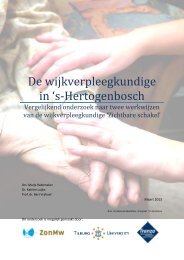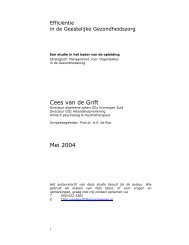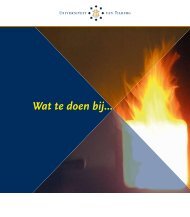Here - Tilburg University
Here - Tilburg University
Here - Tilburg University
You also want an ePaper? Increase the reach of your titles
YUMPU automatically turns print PDFs into web optimized ePapers that Google loves.
Author and presenter<br />
Lospinoso, Joshua A.; Dept. of Statistics, <strong>University</strong> of Oxford<br />
Title<br />
Joint inference on informant accuracy and social network dynamics<br />
Abstract<br />
To date, models for social network dynamics have been formulated<br />
(perhaps implicitly) in such a manner that complete trust is bestowed upon the<br />
observed data; the observed data panels are taken for the true state of<br />
relationships and data augmentation proceeds by constructing chains that could<br />
have connected them. This trend of placing complete trust in the data follows<br />
the general social networks literature. However, the extensive literature on<br />
informant accuracy suggests that placing such trust in the observed data as a<br />
representation of the true state of relations may be a tenuous proposition.<br />
In this talk, a flexible class of models is considered which relaxes the strict<br />
trustin observed network data.<br />
This intermediate model for informant accuracy can represent basic noise with<br />
some false positive rate and some false negative rate and be elaborated by<br />
random and fixed effects models. Bayesian ideas can be leveraged, as the notion<br />
of genuine prior belief about informant accuracy may be particularly appropriate.<br />
Further, the exponential random graph (ERG) family of models can be naturally<br />
employed for this purpose. In this sense, the model is a generalization of the<br />
Stochastic Actor Oriented Models of Snijders (2001) which permits joint<br />
inference on the social network dynamics and on the informant accuracy.



